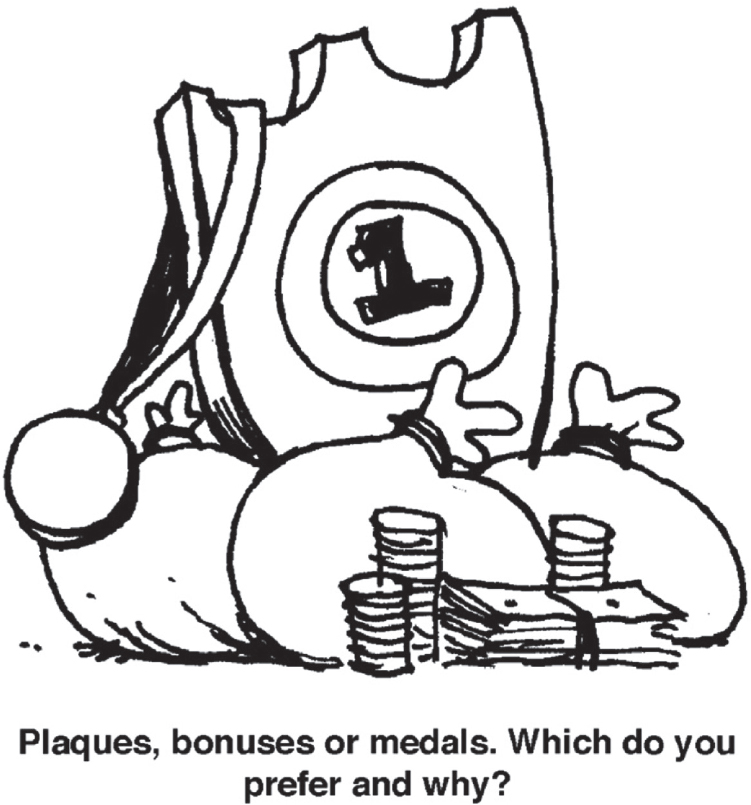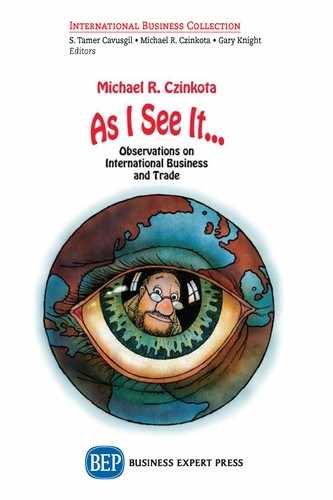Why International Marketing strengthens Freedom
Congressional Records US House Representatives, May 2005

You may ask what freedom has to do with international marketing. Freedom is about options. If there is no alternative, there is no freedom. A true alternative provides the opportunity to make a decision, to exercise virtue. In the blaze of the klieg lights, it is easy to make the “right’’ decision. That is not an exercise in virtue, because real alternatives are effectively removed. The true selection among alternatives takes place in the darkness of night when nobody is looking.
The focus and aim of international marketing is on crossing borders. The goal is to provide more than one choice for customers, letting them pick from a selection of options in order to maximize their satisfaction. International marketing does so in all corners of the globe, the glamorous ones as well as in the small and remote ones where the efforts are not seen by others. By operating both in the limelight and also well outside of it, international marketing offers the freedom to exercise virtue both to the seller and the buyer—be it in decisions of supplying or purchasing, pricing or selecting.
Another key dimension of freedom is not to confine, but allow people to go outside of the box. As a concept, freedom knows no international boundaries. But national borders usually are the boxes where business and government find their limits. Such borders are a mere point of transition for international marketing. The discipline thrives on understanding of how to successfully cross national borders, on coping with the differences once the crossing is done, and on profitably reconciling any conflicts. International marketing contains the freedom of almost unlimited growth potential. Activities confined to domestic borders may well run into limits of expansion.
International market opportunities relax these limits quickly. Instead of restrictions, the international marketing paradigm encourages the stripping away of restraints; instead of limitations, there is the encounter of wide opportunity. Hayek thought that freedom also means not being forced to do something one does not want to do. There are economic migration pressures that force people to move from their rural homes into urban areas, from their developing countries into industrialized ones or from wartime conditions to peaceful environment. Industrialized nations, in turn, speak about immigration pressure. For both sides, little if any freedom is involved here. Most individuals who do the moving would much rather stay home but cannot afford to do so due to major exigencies. The recipient countries might not want to welcome the migrants but do so in response to political and humanitarian pressures.
International marketing may have been part of what triggered some of these migrations, but it also can be instrumental in stemming the tide. It can provide the economic opportunity for individual at home so that they need not migrate. Thus, it lets individuals become productive contributors to the global economy free from pressures to shift locations. When the long-standing rivalry between socialism and market orientation was resolved, market forces and the recognition of demand and supply directly affected human rights and the extent of freedom. With all humility and gratefulness, we can conclude: Markets were right! In country after country, market forces have demonstrated typically greater efficiency and effectiveness in their ability to satisfy the needs of people. International marketing has been instrumental in stimulating these newly emerging market forces. In spite of complaints about the slowness of change, biases in wealth distribution, and the inequities inherent in societal upheavals, a large majority of participants in market-oriented conditions are now better off than they were before. Without the transition provided by international marketing, these changes would not have come about that swiftly and efficiently.
One keeps healing about the large segment of the world population that is poor and therefore supposedly excluded from any international marketing efforts; the World Bank calls them the 3 billion $3-a-day poor. By contrast, international marketers should see them as an attractive $9 billion-a-day opportunity for valuable transactions. What is more is that international marketing provides the opportunity to acquire resources without the deployment of force. Why fight if you can trade? Countries that have been historic enemies such as France, England, and Germany are now all united in collaboration through international marketing. The field is, therefore, at the very least contributing to freedom from war while providing additional choices and freedom for consumption.
